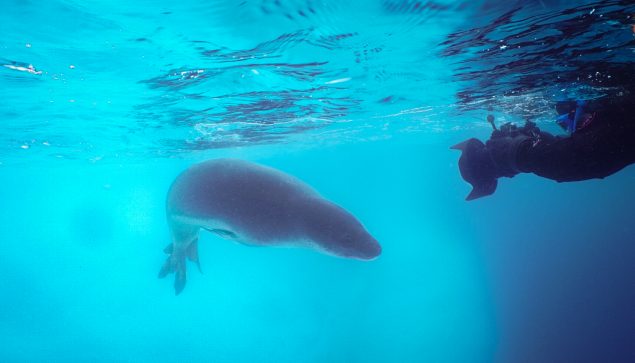When it comes to learning underwater filmmaking, knowledge and experience can not only mean the difference in getting a good shot, but also a difference in safety. Earning a college degree in filmmaking can provide the opportunity for networking opportunities and connections that can last a career. It’s also a great way to learn the technical skills and theory of filmmaking itself. Even courses or a degree in biology or marine biology will help you to understand what you are filmmaking and will help you to communicate with scientists and the public.
If college is not a good fit for you, do not fret! A degree is not a requirement. In fact, experience can sometimes be even more important. Reach out to filmmakers you admire and ask for advice. Try to assist on shoots and practice as much as you can. Many underwater filmmakers are self-taught and now with platforms like YouTube and online courses, it’s easier than ever to learn the basics.
The most important education you can receive, though, is SCUBA diving and freediving. You need to be comfortable and confident in the water. You need to keep a clear head in an emergency and be able to respond to danger rationally. Safety should be the number one priority when filming underwater. Additionally, researching the animals you may encounter and the environment you are diving in will help you prepare your response in an emergency.


